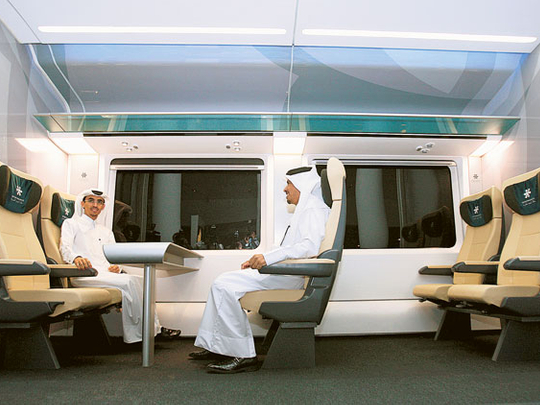
Dubai: Huge investments earmarked for railways and roads in the Gulf Cooperation Council (GCC) in the coming years are set to pave the way for the region's future.
The total value of railway projects (rail, metro, tram, and stations) is an estimated $79 billion (Dh290 billion) between 2011 and 2020, according to a new study released by Kuwait-based investment bank, Kuwait Financial Centre or Markaz, including the $30 billion GCC rail network, to be shared among the member countries.
For the roads sector, however, the total value of ongoing projects in the GCC, using a bottom-up approach, is an estimated $18 billion at the end of last June, said the report, titled GCC Roads & Railways: Seeking Alternative Transportation.
Of this, only one per cent is delayed, according to Markaz.
"The UAE is by far the most dynamic country with a share of close to 42 per cent. Qatar is all set to catch up with a share of 22 per cent," the report stated.
Strategy
Describing the future strategy for the road sector as ambitious, Markaz said that when the estimated value of projects announced for the period 2011-2015 is taken into account, total GCC spending s amounts to $58 billion.
The GCC has historically focused its transportation investments on building highways, according to the Markaz report, thus ensuring high quality roads across most of the region.
It pointed out that though the quality of roads is significantly better than in other emerging markets, there is "concern over the current capacity", as the increase in both population and propensity to purchase an automobile has led to clogged roads in most major GCC cities.
The aggregate length of the roads is an estimated 291,313 km, according to the Markaz report. Of this, 75 per cent is in Saudi Arabia, and 16 per cent in Oman. These two countries have the largest land areas in the GCC, thus the rest of the countries have a combined share of approximately seven per cent, according to the report.
Despite the boom in the number of roads being planned across the region, most countries are also looking at alternative forms of transportation to ease the strain on the highways.
"Rail is more energy-efficient than cars, buses, or trucks. It also saves on manpower and would help to enhance safety. Though requiring high investment initially, it has relatively low operation costs compared to other modes of transport," the report says.
It added that Dubai has spearheaded the GCC in unveiling the first phase of its Metro project, as other countries are now planning or discussing their versions — they are also planning for a pan-GCC rail network, the report says.
In terms of value, as per Markaz's estimates, the updated value of this project is considered to be around $30 billion and will consist of a first rail line connecting all the GCC countries and Qatar via a bridge.












